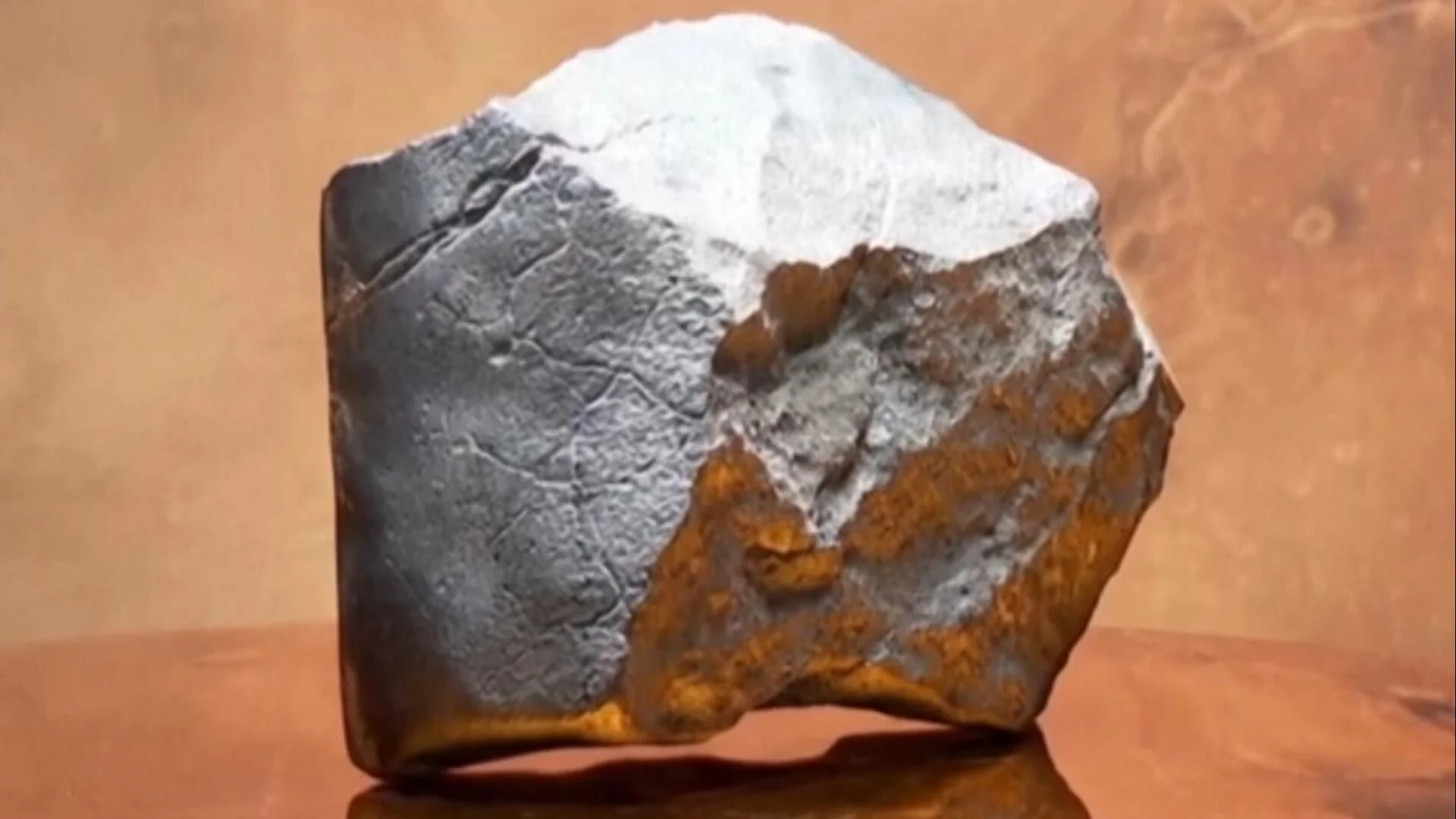
Niger has expressed outrage following the auction in New York of the largest Martian meteorite ever discovered, raising suspicions of illicit trafficking.
The 25-kilogram stone, named NWA 16788, was found in November 2023 in the Agadez region and sold to a private buyer for over $5 million. In response, Niamey has launched an investigation and suspended exports of meteorites and precious stones.
The meteorite’s discovery had initially been hailed as a scientific milestone.
Unearthed in the heart of the Nigerien desert, NWA 16788 is exceptional both in size and composition, offering potentially invaluable insights into the geological history of Mars.
However, rather than joining Niger’s national scientific collections, the fragment was exported and auctioned in July 2025 by Sotheby’s, fueling concerns about legality and provenance.
“The meteorite left the country illegally,” said American paleontologist Paul Sereno, a collaborator of Nigerien authorities.
“It is clear that this stone should never have been removed without proper authorisation.” The identities of both the seller and the buyer remain undisclosed, intensifying the mystery surrounding its current location.
The controversy has highlighted a broader legal grey area regarding meteorites. While some nations attribute ownership to the landowner where a meteorite lands, Niger classifies such finds as “rare mineralogical specimens,” legally protected from export.
Experts argue that NWA 16788 falls squarely under this protection, suggesting its removal violated national law.
Beyond legal questions, scientists warn of an ethical dilemma. NWA 16788, if preserved in Niger, could be studied internationally and displayed to the public, providing a unique tangible link between Earth and Mars.
Instead, the Martian fragment is currently secured in a private vault, invisible to researchers and the public alike, leaving the world to wonder what secrets it may hold.
The Nigerien government has called for the meteorite’s return, framing the case as both a legal and moral imperative, while the international scientific community watches closely, urging greater protections for such extraordinary celestial discoveries.



